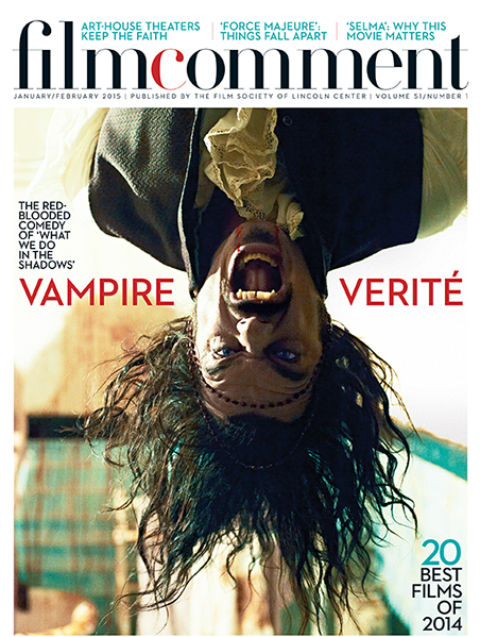
Maybe you’ve seen her: a girl-child in a heavily soiled nightdress, creepy-crawling on her belly through a garden of toadstools in the yard beside an old dark house. She is “the Sixties”—in all its promise and eventual deformity—coming into being, coming up from underneath.
She was born Mary Kathryn Molumby in Bremerton, Washington, in 1946, but by 1964 she was Jill Banner, still only 17 and suddenly starring in Jack Hill’s comic-horror masterpiece Spider Baby. She’d studied acting in high school alongside close friend Peggy Lipton but she still hadn’t graduated, and she’d never been in a movie before. As Spider Baby opens, we watch her snare and “devour” a mailman with a pair of knife-mandibles, a wanton waif both gleeful and lethally blank. Now, out creepy-crawling through those mushrooms, she’s rounding up some salad fixings for supper. Company has arrived at that old dark house, the Merrye mansion, where, in a deranged and isolated “family” alongside worn-out Wolfman Lon Chaney Jr., bald and slobbering young Sid Haig, and veteran child star Beverly Washburn, Banner’s Virginia Merrye is a spider baby, but not the film’s—or the decade’s—only one.
A colloquial term handed down through world culture (and John Entwistle’s “Boris the Spider”) before the “girls” of the Manson Family codified it, “creepy-crawling” was Family slang for invading people’s homes as they slept, like incarnations of flickering TV broadcasts of Universal horror films on the Midnight Movie, licking and rearranging objects and furniture, stealing a knickknack or two, and leaving undetected. It was foreplay for the Family’s killing spree to come. One of the multiple ways of understanding Spider Baby (in which ambiguities abound, and a thorough knowledge of genre history is essential) is as a forecast of the blood drift of hippiedom with which the decade would conclude—a vision of history in which Molumby/Banner’s Virginia is clearly a harbinger of Manson’s harpies, complete with steely knives, a ravenous gleam in her eye, and a brand-new name or two. Banner would continue fleshing out and complicating this archetype—lost girl as decade’s lost innocence—throughout her all-too-brief career.



Dragnet (x3)
Banner had just happened into Jack Hill’s office during the casting of Spider Baby, which sat on a shelf until late ’67 and was barely noticed even then; it did virtually nothing to advance her career. She made another horror film that no one seems to have ever seen, Weekend of Fear (66), and was featured in an unremarkable spaghetti Western, Luigi Vanzi’s A Man, a Horse, a Pistol (67). She fared much better as a diaphanous flower child named Snow White in Theodore Flicker’s barbed James Bond–era espionage riff The President’s Analyst (67): “Smell the earth,” she advises a turned-on and tripped-out James Coburn. “Now is pretty. Love now. I’m now. Love me.” It was the last feature she’d make. One of the quintessential, if altogether ephemeral, American female screen presences of the late Sixties, Banner remained and remains unknown, even though her five career-defining performances on Jack Webb’s counterculture-revamped Dragnet (as everything from a schizophrenic college girl to a flattened-affect heroin hype) have been seen by millions of television viewers.
Banner had range, though we’ll never know just how much. Marlon Brando, with whom she had a long and complicated relationship, said “she made me laugh harder than any woman I’ve ever known,” but Banner certainly knew how to rein it in, how to make a big impression by doing very little at all. She sneered as naturally as she exhaled, and never needed to force it. She made men angry with themselves just by being there, maybe because, though sexy as hell, you knew that—like a spider, baby—she’d probably fuck you then chew your head clean off. Consider, if you will, the words of the rarely-moved-beyond-stoic-seething Sgt. Joe Friday when confronted with the sullen and diffident young accomplice to murder played by Banner on the Dragnet episode entitled “The Hammer” (67): “I’ll bet your mother had a loud bark.”
Banner kept working in television through 1972: episodes of Adam 12, The Name of the Game, Cade’s County, then she dropped out, went to sell real estate in New Mexico for a while. A decade later, at the age of 35, she was back in Los Angeles, back with Brando, thinking about getting back into her career, when, in 1982, her car was struck by a truck on the Pacific Coast Highway in Malibu, killing her. Oh, but how she had once creepy-crawled through Hollywood’s haunted past, weaving webs that would vanish overnight!









